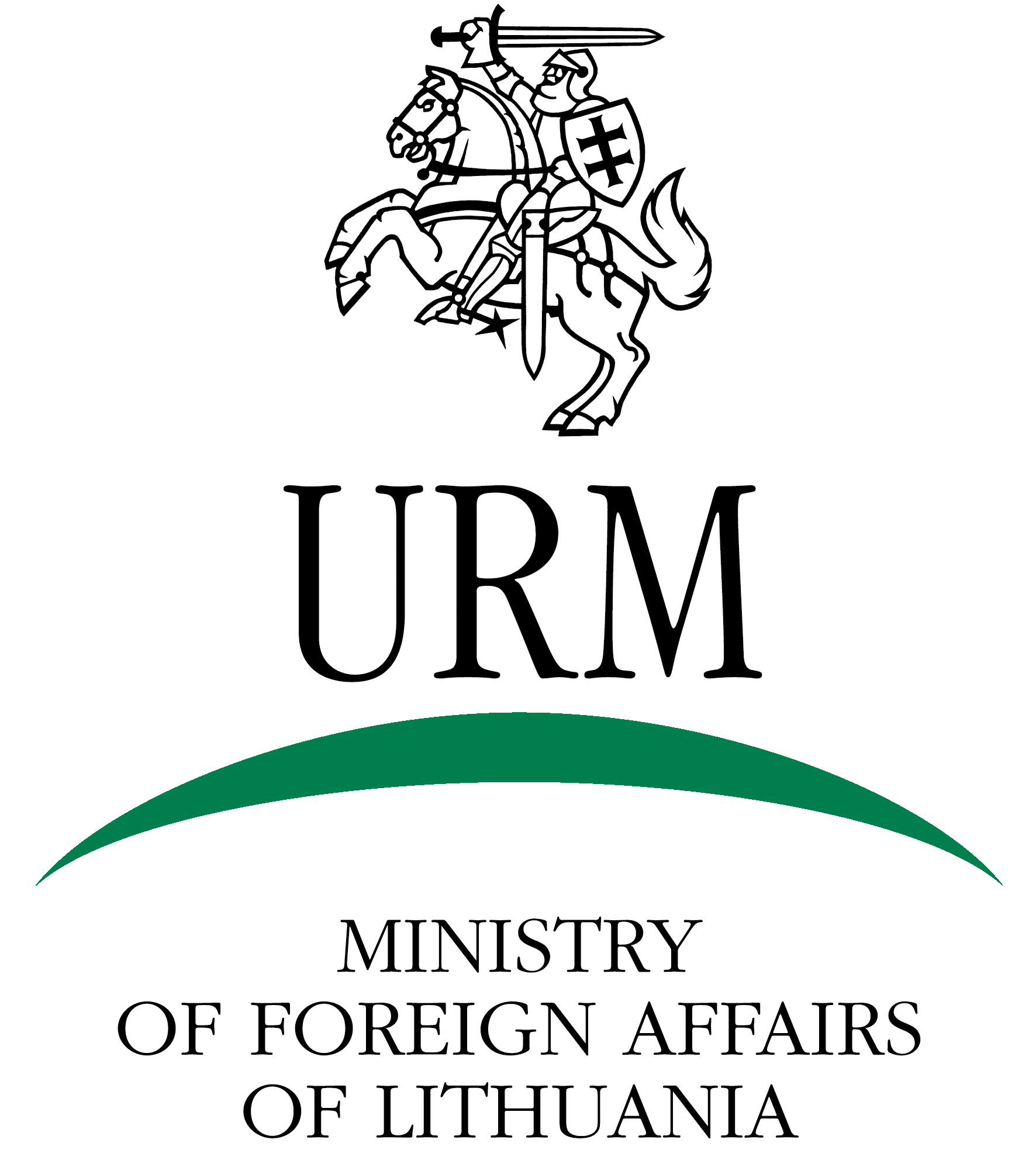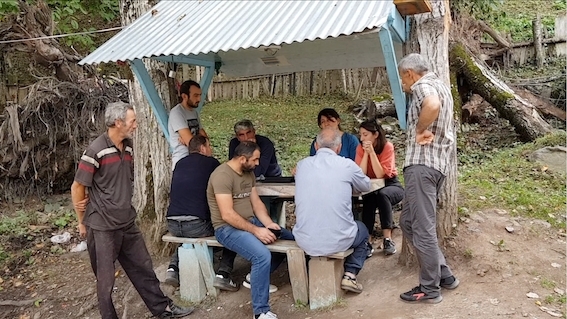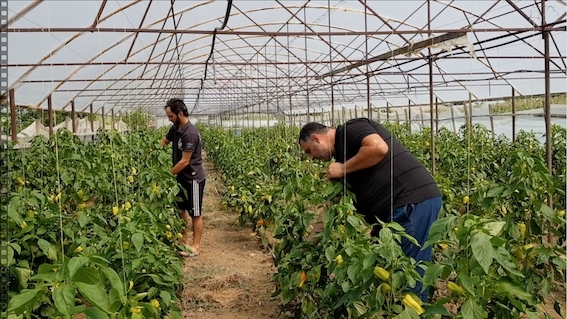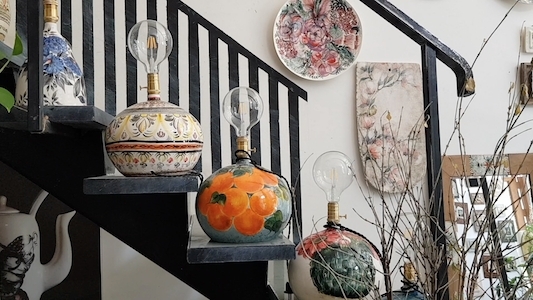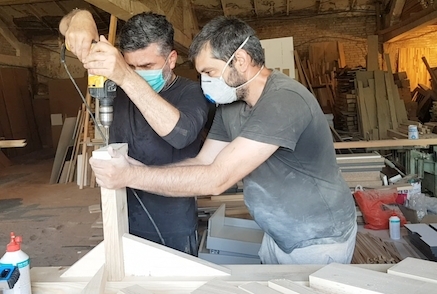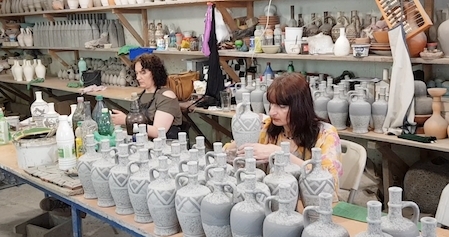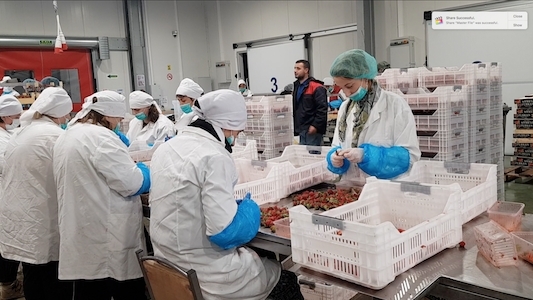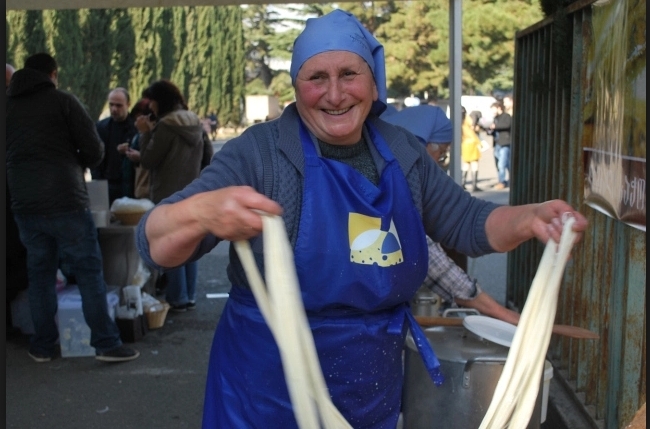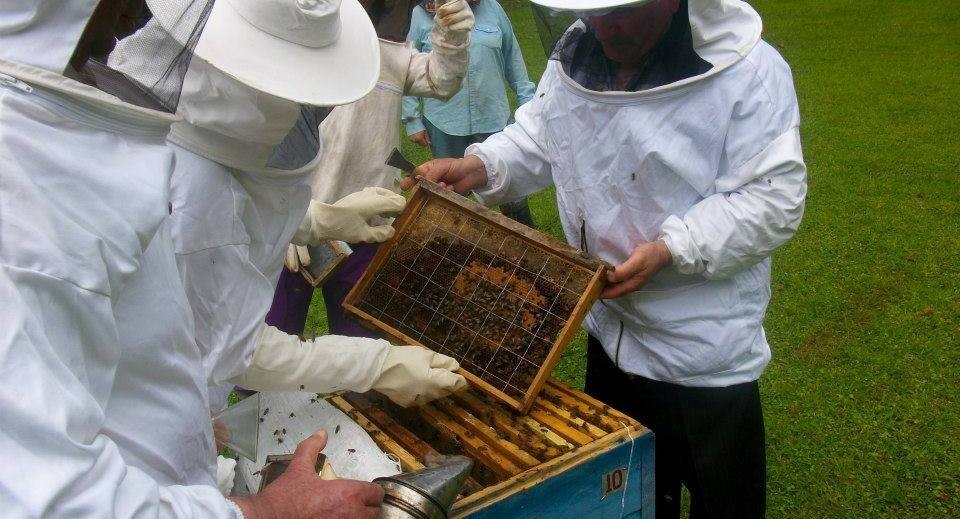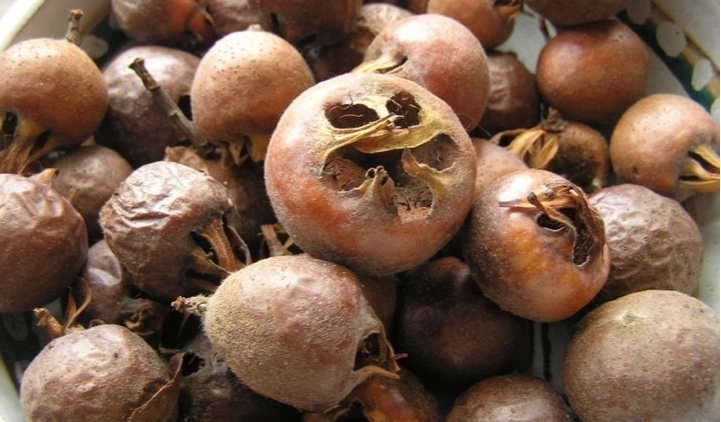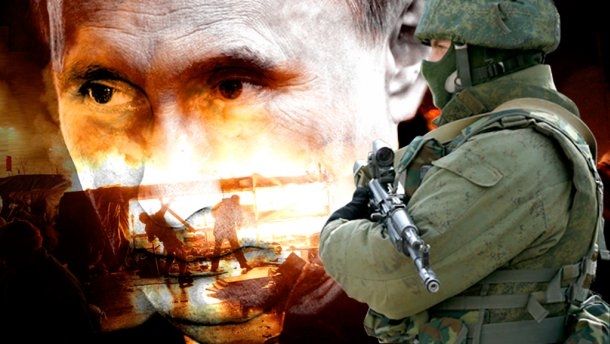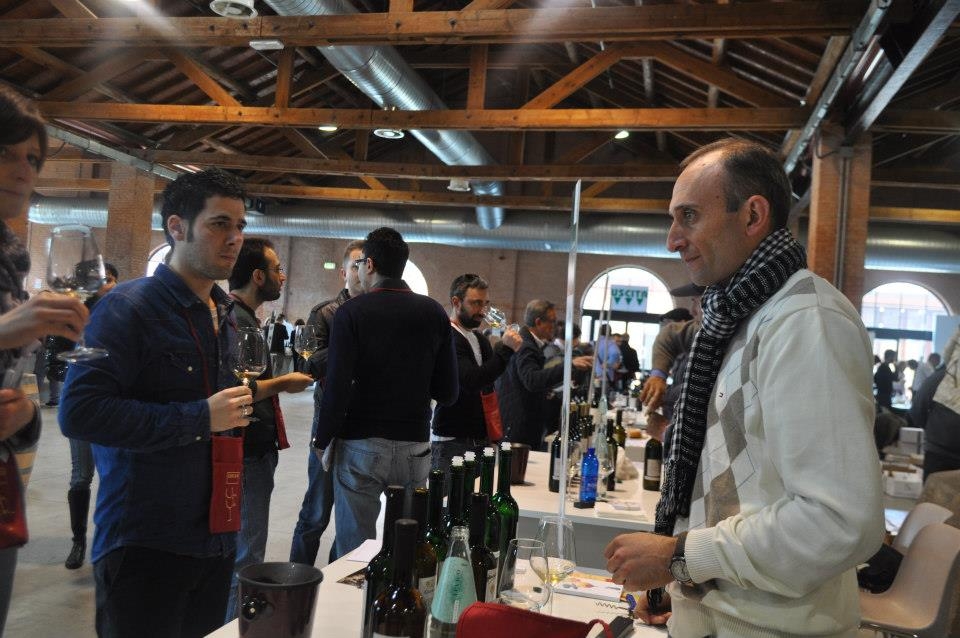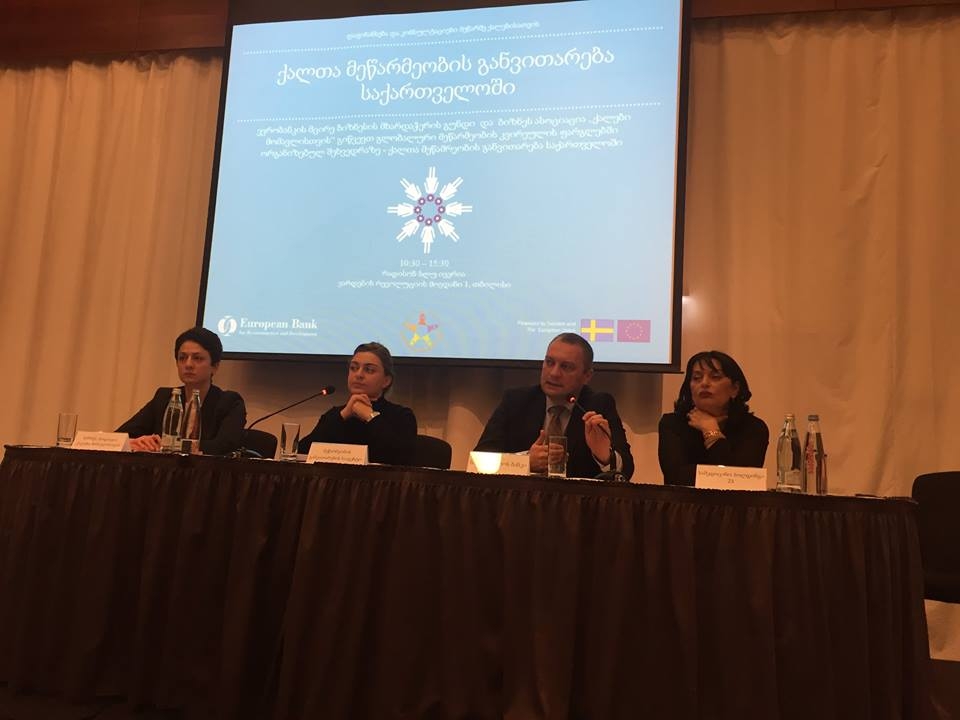What problems does the Georgian furniture cluster have?

Georgian Furniture Cluster unites 35 small and medium enterprises, interior designers and service providers, as well as educational institutions. The cluster was created to support the furniture sector, improve product quality and facilitate exports. It is more 2 years since the formation of this union; however, we see no significant progress in terms of export growth. The sector has many problems, starting with the natural wood market and continuing with technological support. The shortage of qualified staff is also a significant challenge for the furniture companies united in the cluster.
Most of the members of the cluster operate in the area of the "Craftsman City". "Craftsman City" is in Avchala settlement, Tbilisi, where about 200 furniture manufacturers and self-employed craftsmen are compactly located. A cluster is a non-profit (non-commercial) legal entity, which means that it is a union of independent, competitive enterprises.
The establishment of the furniture cluster was started in October 2016 by the German Society for International Cooperation (GIZ). As a result of the implementation of the project co-financed by the European Union under the EU4Business initiative - "Development of Small and Medium Entrepreneurship and DCFTA in Georgia", a Georgian furniture cluster was created. The governing body of the cluster should work to improve the quality of production, as well as to increase competitiveness in local and international markets and to promote the training of qualified personnel. In addition, the board should advocate and lobby the sector with government agencies. We talked to Mariam Lezhava, a member of the cluster board, about the activities of the furniture cluster and the current problems facing its member enterprises:
- What specific benefits have the joining of furniture enterprises into a cluster brought?
- First, I would like to highlight the fact that the furniture sector has become one of the priority sectors for the development of the Georgian economy as a result of this integration. As a result, member companies have managed to expand their business. Entrepreneurs had expectations that they would work more successfully. The furniture manufacturers' association existed before, but the cluster gave this association a legal basis. Lobbying and advocacy of this field has become easier. As a result, new enterprises are constantly being added to the cluster. Cluster member companies were sent to various exhibitions and furniture companies around the world. Several companies have been able to perform difficult projects with high quality. Among them was a large order of furniture for the World Chess Tournament, which was held in Batumi. Radically different pavilions were arranged in the shortest possible time. One company could not fulfill this order on its own. Therefore, several cluster companies were involved in the project and the project has completed successfully.
- One of the goals of the joining the cluster was to promote exports. How far was this goal achieved?
None of the serial products produced by the cluster member enterprises has been exported to international markets yet. Exports were obstructed by bureaucratic barriers. "Ikea" was interested in the products of one of the members of the cluster, "Eco", which produces high quality outdoor furniture with natural wood raw materials. "Ikea" ordered a large amount of furniture to this company. “Eco” needed additional financial resources to fulfill this order, so it applied to the "Enterprise Georgia" project, but their application was rejected due to a bureaucratic problem. The reason for the refusal was that the application had to be submitted with the signatory of the applicant, but document was submitted by his brother instead. Because of this, the application was not accepted. "Eco" could not receive funding and the project failed. If this company can raise funds in the future, Ikea is ready to buy their furniture.
-What are the current problems in furniture production and what should be done to solve them?
Poor quality of raw materials also hinders the development of production. Relatively low-quality materials are imported to Georgia, which is not suitable for export production. This raw material does not meet the Euro 1 standard, so it cannot be exported to EU countries. There are also relatively high-quality raw materials, but it is not enough for massive production.
- Do you use local wood material in furniture production?
- As for the local market of natural wood, the situation there is much more difficult. Wood material is mainly sold on the "black market" and the enterprise has to buy it without any documents. Because of this, the enterprise cannot reflect it in costs, which then makes the products more expensive. Due to the social situation of the population, local production uses cheap, imported raw materials, which are obviously not natural. There is a demand for natural wood products from foreign customers, but it is difficult for Georgian furniture companies to produce it, as the cost of production is high. The reason for this is that the wood raw material market is not regulated by the government.
According to modern standards safety norms should be met. Many local enterprises fail to do so. Most of the workers employed in local enterprise have injuries, many of them miss fingers. Modern production technologies require that if personnel approach the machine closer than permissible level, it will stop automatically to prevent damage. Unfortunately, they work with very old machines, therefore they cannot maintain safety, so they need more resources and time for production.
In addition, there is a staff outflow from enterprises. The company grows staff over the years, teaches him, and after getting to know the job well, he/she goes and starts producing furniture himself. It I more common when he cannot handle the job independently, has lots of debt and as a result customer is not satisfied as well. Furniture production suffers from a shortage of qualified personnel. Only one person knows how to work on one of the machines that make ornaments on furniture. When the machine goes out of order, this person repairs it himself, because there is no proper worker in the country.
A state-funded college has been set up in the "Craftsman City" area. The college is called the "School of Crafts", which trains staff for the furniture sector. The college student has internships in local enterprises and after two month he/she gets job there. We would like to do more qualified courses to train the specialists of any machine, such as the compiler of drawings. There is a lack of this kind of specialists as well.
- What should be done by the government in order to facilitate cluster cooperation?
- It should be mandatory to issue licenses for furniture enterprises, so that no one can open the enterprise, take money from the customer, then not fulfill the order. There is no regulatory body in the country that regulates an enterprise license. An enterprise must have accredited program passed and the employee in this field must have the appropriate skills.
- What plans does the cluster have for future?
-The future goal is for all the companies united in the cluster to stand firmly in order to able to independently manage their own company, to find new markets and to export their products. This will only happen once the quality is improved and there is healthy competition in the market.
- The goal of the cluster formation is to save costs for companies located in geographically close area. How well do they manage to do this in the "Craftsmen City"?
- Gathered in one area, these companies have significantly reduced costs. The supplier and the manufacturer are in one space on the territory of the "Craftsman City". They have a common warehouse; they do not have transportation costs and no time is wasted. For example, one company has a good machine, another has a high-quality cutter, and a third has qualified staff. They rent this resource from each other. All this increases production efficiency and makes products cheaper.
As we know cluster has funding problems, for what reasons do you need additional financial support?
-The furniture sector is characterized by seasonality. Orders decrease from February to mid-April, and in September. If the company has a good reputation, it has no problem of expanding, it pays salaries and taxes without delay. However, for larger projects such as sending an employee abroad for training, resources are no longer available. We try to help them with the money received through donors. We are also looking for a donor organization that will ensure the introduction of international standards in cluster member companies and the involvement of foreign experts to improve product quality.
Author: Nona Kvlividze
The article is prepared with the financial support of the Ministry of Foreign Affairs of Lithuania and "Development Cooperation and Democracy Promotion Programme."
